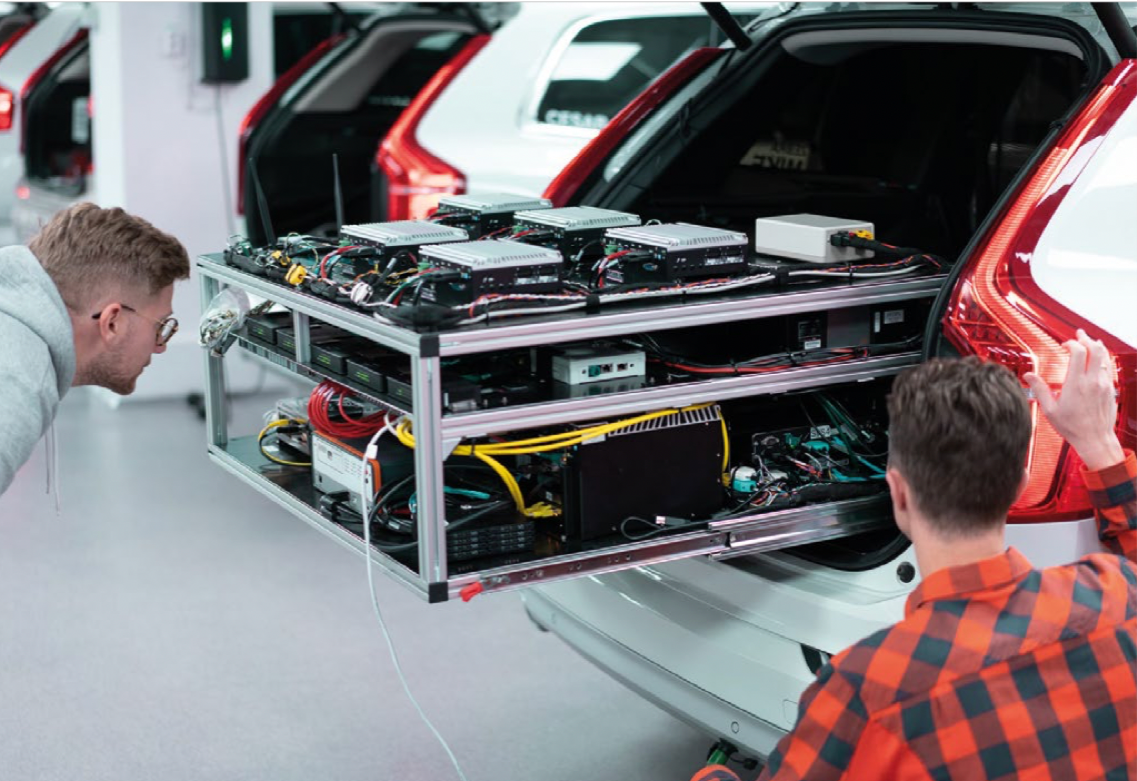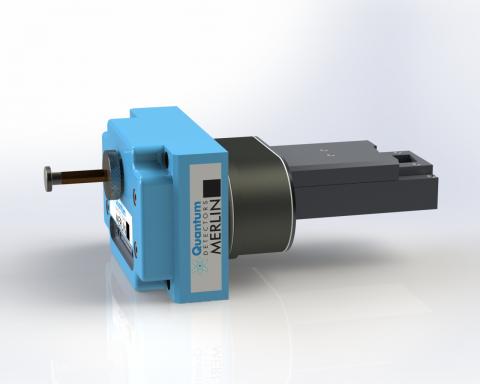Back to CERN, STFC & UK industry.
Software solutions for autonomous driving
 Zenseact (formerly Zenuity), a company developing software solutions for automotive safety and autonomous driving (AD), has become the first to team up with CERN in the fields of fast machine learning.
Zenseact (formerly Zenuity), a company developing software solutions for automotive safety and autonomous driving (AD), has become the first to team up with CERN in the fields of fast machine learning.
A fundamental challenge in the development of AD cars is the fast interpretation of the huge quantities of data generated in normal driving conditions. CERN has approached this challenge in the context of physics data acquisition, by using Field-Programmable Gate Arrays (FPGAs) hardware that can execute complex decision-taking algorithms in microseconds. The collaboration between Zenuity and CERN aims to leverage this knowledge using FPGAs for fast machine learning applications that allow AD cars to reach fast decisions and make predictions more quickly.
(Image Credit: Zenseact)
Development in Quantum Detectors
 Quantum Detectors, a spin-off from the Medipix Collaboration, was founded to promote a wider exploitation of detectors developed for synchrotron radiation, LASER and other large scale facility applications. Their product, the Merlin photon counting detector system is based on the Medipix3 ASIC. Recently they have adapted the Merlin for electron microscopy applications, in collaboration with the University of Glasgow.
Quantum Detectors, a spin-off from the Medipix Collaboration, was founded to promote a wider exploitation of detectors developed for synchrotron radiation, LASER and other large scale facility applications. Their product, the Merlin photon counting detector system is based on the Medipix3 ASIC. Recently they have adapted the Merlin for electron microscopy applications, in collaboration with the University of Glasgow.
CERN experts shared their expertise on machine learning with Sanofi Pasteur
 A team of experts from CERN shared their expertise on machine learning with Sanofi Pasteur, the vaccines business unit of Sanofi, a global life sciences company.
A team of experts from CERN shared their expertise on machine learning with Sanofi Pasteur, the vaccines business unit of Sanofi, a global life sciences company.
A four-day training course tailored to address topics specifically of interest to Sanofi-Pasteur, with the aim of improving vaccine production. The course was built around ROOT, the data analysis framework used to analyse HEP data, and the Toolkit for Multivariate Data Analysis (TMVA), a library of associated machine learning algorithms. The main objective of the course was to apply novel machine learning techniques to various vaccine production challenges that had proven hard to solve using conventional methods.
Explore more stories of successful collaborations at kt.cern

